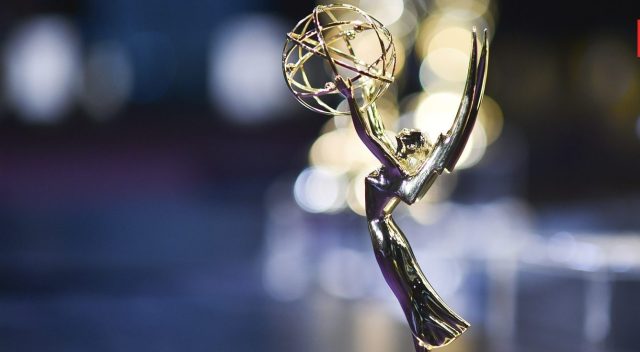
Ahead of the 77th Emmy Awards, first-time host and stand up-comic Nate Bargatze had declared that there will be nothing “political” about the ceremony. When asked if Charlie Kirk’s killing had led him to alter the script of the awards show, he said, “We were never gonna really do anything [political] to begin with, and so it was really just trying to stay in the lane that we’re in.”
One does not watch the Emmys for its “politics”, but declaring that a platform will not be political beforehand gives the impression that it is being consciously sanitised. Of what, though? Everything happening around us? After all, the Emmys are not happening in a bubble.
The Emmys has had a robust history as a platform where the entertainment industry has voiced its concerns over, extended support to and protested against a host of “political” issues — from the Vietnam War to the AIDS crisis of the 1980s, the 9/11 attacks, Iraq War, racial discrimination, women’s rights and issues of inclusivity.
The 2025 ceremony ran true to past form. In his opening sketch, Bargatze transformed into television’s founding father Philo T Farnsworth, and with SNL’s Bowen Yang, James Austin Johnson and Mikey Day, predicted the future of the revolutionary invention. As he paid tribute — of a sort — to the television industry as it is today, warts and all, he spoke of how, in the future, there will be channels dedicated to niche segments showing unexpected content. He said, for instance, that the “learning” and “history” channels will have shows with “pimple poppers” and “aliens” respectively.
He also took a dig at streaming, describing it as “a new way for companies to lose money”. That the ads would not stop despite the viewer paying the subscription fees. He talked about the existence of a “Black Entertainment Television”, followed by a subtle jab that for White people, there would be CBS — the “Caucasian Broadcast Network”. It’s almost confusing what Bargatze considers political.
But what you resist, persists. Stephen Colbert — whose The Late Show was cancelled by CBS in July this year, following a “multimillion-dollar settlement with President Donald Trump” — did not just receive a standing ovation when he appeared on the stage as a presenter, he also casually pitched for a job with a headshot. That he also bagged an Emmy for his talk show is proof of how the industry perceives the politics of the current administration.
If that isn’t political enough, how about actors Aimee Lou Wood (The White Lotus and Sex Education), Natasha Rothwell (The White Lotus), the Academy Award-nominated Ruth Negga (Loving), Chris Perfetti (Abbott Elementary) and Hannah Einbinder, who won her first Emmy for her performance in Hacks, sporting an “Artists4Ceasefire” pin and demanding that the Gaza war be immediately halted? Einbinder, closing her acceptance speech, said, “Go Birds, f**k ICE and free Palestine”.
Then there was Meg Stalter (Hacks) ditching the customary gown on the Emmys red carpet and turning up in a white t-shirt and jeans with a black hand bag with ‘CEASEFIRE’ written on it. And Javier Bardem (Monsters: The Lyle and Erik Menendez Story) who wore a keffiyeh to the Emmys and announced that he “can’t work with someone that justifies or supports the genocide”.
If these aren’t political enough, how about the jeers directed at the Trump administration defunding CPB (Corporation for Public Broadcasting) during the Television Academy chairman Cris Abrego’s speech? He opened his speech by recognising CPB’s contribution in providing stations that were the only reliable “Emergency Alert System” in small towns.
“But at the end of this year, CPB will close its doors because Congress has voted to defund it,” Abrego said. As he called upon the stakeholders of the television industry to use their strength of “diversity”, “imagination” and “courage” to move forward, he said, “For generations, artistes have seized the power of television to broaden horizons, challenge the status quo and bend that arc of history towards justice… So let’s do that together. Let’s keep telling stories, and let’s make sure that culture is not a platform for the privileged, but a public good for all.”
If that is not political, I don’t know what is.
trisha.mukherjee@expressindia.com